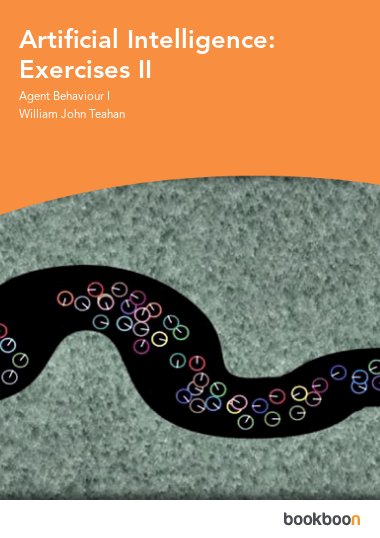Artificial Intelligence, or AI, is the study and development of computer systems which can perform tasks which normally require human intelligence. Agent Behaviour is a complex aspect of AI, but integral to one’s understanding of the subject. It is discussed in detail in William John Teahan’s “Artificial Intelligence - Agent Behaviour I” e-book.
This “Artificial Intelligence: Exercises II” e-book will guide you through useful exercises related to the “Agent Behavior” text. Both the source text and this exercise e-book can be downloaded for free.
Exercises within this AI workbook help the reader understand a wide range of topics, including the difference between reactive and cognitive agents, stigmergy, swarm intelligence, Dijkstra’s algorithm, knowledge-based systems, the limitations of AI, and advancements towards computers with problem solving abilities. Each of the exercises correspond to a NetLogo model which can be accessed online and manipulated for learning purposes. Solutions to selected exercises follow the text.
Readers interested in this subject matter should also refer to the “Artificial Intelligence: Exercises I” e-workbook which is also available on bookboon.com.

